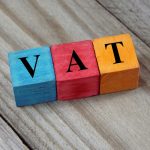
Are you just starting out in business? Have you been in business for a while and wonder whether you should incorporate into a Limited company?
One of the important initial decisions to make is which type of trading structure you should choose.
If you are going it alone, you could choose to be a sole trader or a Limited company. If there will be more than one of you then partnerships and Limited Liability Partnerships (LLPs) can also be thrown into the mix in addition to a Limited company.
What is the difference?
Sole trade/partnership
You run the business as an individual(s). You will be personally responsible for any losses that the business makes or causes.
Limited company
This is a separate legal entity which is responsible in its own right for everything that it does. Its finances are kept separate from your own expenses. It offers limited liability so the directors are not personally responsible for debts that the business cannot pay as long as they have not broken the law.
LLP
This is a bit of a hybrid between a partnership and a company. You run the business as individuals but it also offers limited liability.
How can I receive money from the business?
Sole trade/partnership/LLP
You will simply be able to draw the profits out of the business. This can either be through transferring money from the business bank account to your personal bank account or the business could pay for some of your personal expenses.
Limited company
Any money that you receive from the company will need to be classified as a form of remuneration. This is usually in the form of salary and dividends. It could also be in the form of rent (if you own the business premises and rent them to the company), interest if you have loaned the company money or company pension contributions.
The simplest way to receive remuneration is usually a small salary and the balance as dividends. This will save you and the company National Insurance Contributions but it will still count as a qualifying year for state pension purposes. To pay dividends the company will need to have sufficient reserves to cover the dividends.
How will my income be taxed?
Sole trade/partnership/LLP
You will pay tax on any profits regardless of how much money you draw from the business. Depending on the level of profits this could be up to 45%. You may also need to pay Class 2 and Class 4 National Insurance depending on the level of your profits.
Limited company
The company will pay corporation tax at 19% on its profits.
As a director/shareholder you will only pay tax on any money that you receive from the company. This could be in the form of salary, dividends, rent or interest. If you take a mix of salary and dividends this is likely to be a maximum of 38.1%.
It is generally more tax efficient to trade through a limited company if your profits are in excess of £25,000-£30,000 per individual.
Are there any other things to consider?
Limited companies and their directors are governed by Company Law which means that there are more responsibilities to trading as a Limited company than as a sole trade.
This can equate to increased accountancy costs as there are extra statutory requirements that need to be fulfilled.
A Limited company can look more impressive and professional.
Trading through a Limited company means that the annual accounts will need to be filed at Companies House and will be visible to the public. However, only a shortened version of the accounts will be visible which will not show your profit/loss for the year or how much money you have personally received from the company.
If you make losses as a sole trade the losses can be set against your other income which could reduce your tax bill if you have other taxable income. If you trade through a Limited company any losses are held in the company and you cannot offset them against your personal income.
Conclusion
There are various pros and cons for each entity and the best option will depend on your own circumstances both in terms of the level of your profits and the nature of your business. It is important to think about your long term intentions for the business as what might be suitable now may not be suitable in a couple of years’ time.
If in doubt seek advice. This will avoid incurring unnecessary costs if you decide that you did not choose the right structure.
Useful links:
Gov.uk – guide on the different business structures








